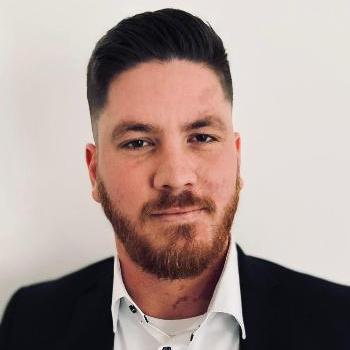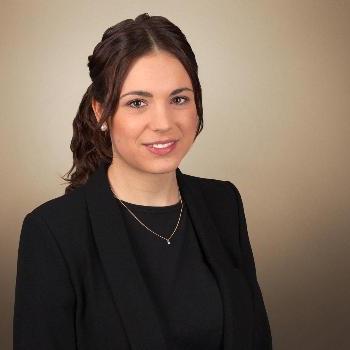Bachelor
Content:
Introduction:
Overview of materials.
Structure of materials:
Atomic structure, bonding types, atomic bonds, crystal structure, defects in crystalline structures, amorphous and partially crystalline structures, solidification mechanisms, mechanical properties.
Alloying:
Element concentrations, phases and microstructures, state diagrams, law of lever arms, binary and ternary metal alloys.
Material testing:
Tensile test on metals and polymer materials, hardness test methods, notched bar impact test, fatigue.
Polymer materials:
Generation of macromolecular chains, principles of macromolecules, polymer material classes, properties and selection.
The following lab courses are currently offered:
V1: Tensile deformation behaviour of metallic materials
V2: Tensile deformation behaviour of polymer materials
V3: Hardness test
V4: Charpy notched bar impact test
V5: Optical stress analysis
V6: Light microscopic microstructural analysis of hypoeutectoid steels
V7: Fatigue
V8: Material surface topography
Content:
Austenite transformation:
hardenability of steels.
Residual stresses.
Selected heat treatments.
Important construction materials:
Structural steels, heat-treatable steels, case-hardening steels, nitriding steels, low-temperature materials, high-temperature materials, polymers, ceramic materials, wood, vulcanized fibre.
Coatings:
Thin film technology (PVD, CVD).
Deformation behaviour at high temperatures:
Creep.
Fatigue.
Content:
Introduction to materials testing.
Differentiation between non-destructive and destructive test methods.
Measuring methods and transducers.
Interaction between structure and sensor.
Deformation behaviour caused by fatigue.
Master
Content:
Introduction into durability growth concepts and their implication on warranty costs & profit.
Dynamic loading of structures and components.
Load data and time-history analyses.
Operational stresses and counting methods.
Load/stress spectrum.
Computation of damage and damage accumulation.
Major parameters in structural durability: materials selection, manufacturing processes, operational loads, component design and joining technology.
Experimental methods for structural durability.
Numerical simulation for structural durability.
The following lab courses are currently offered:
V1: Optical stress analysis
V2: Notch tensile test
V3: X-ray diffractometry
V4: Fatigue
Bachelor BbB
Content:
Introduction:
Overview of materials.
Structure of materials:
Atomic structure, bonding types, atomic bonds, crystal structure, defects in crystalline structures, amorphous and partially crystalline structures, solidification mechanisms, mechanical properties.
Alloying:
Element concentrations, phases and microstructures, state diagrams, law of lever arms, binary and ternary metal alloys.
Material testing:
Tensile test on metals and polymer materials, hardness test methods, notched bar impact test, fatigue.
Polymer materials:
Generation of macromolecular chains, principles of macromolecules, polymer material classes, properties and selection.
The following lab courses are currently offered:
V1: Tensile deformation behaviour of metallic materials
V2: Hardness test
V3: Charpy notched bar impact test
V4: Light microscopic microstructural analysis of hypoeutectoid steels

Vizepräsident für Forschung und Transfer, Studiengangsleitung "Maschinenbau, Bachelor", Fachbereichsrat AING
- +49 631 3724-2389peter.starke(at)hs-kl(dot)de
- Campus Kaiserslautern
- Room H1-2010.1

Fachausschuss Studium und Lehre AING, Assistent FB AING, Fachbereichsrat AING, Prüfungsausschuss AING Bachelor
- +49 631 3724-2265mariodieter.elicker(at)hs-kl(dot)de
- Campus Kaiserslautern
- Room H3-2.041.1

Assistent FB AING, Stellvertretende Fachgebietsleitung
- +49 631 3724-2259fabian.weber(at)hs-kl(dot)de
- Campus Kaiserslautern
- Room H1-2.010.3

Wissenschaftliche Mitarbeiterin
- +49 631 3724-2015janina.koziol(at)hs-kl(dot)de
- Campus Kaiserslautern
- Room H1-2.010.2
Projects to improve the quality of teaching
The following projects could be realized with SQL subsidies of the University of Applied Sciences Kaiserslautern:
- Purchase of a heat treatment furnace for the materials science laboratory (completed)
- Presentation unit to promote the interactive learning process (completed)
- Use of Virtual Reality in laboratory training for materials and materials testing (joint project with Prof. Jens Schuster, Matthias Pfaff, completed)
- Innovative practice and internship opportunities (joint project with Prof. Jens Schuster, Prof. Matthias Pfaff, ongoing).